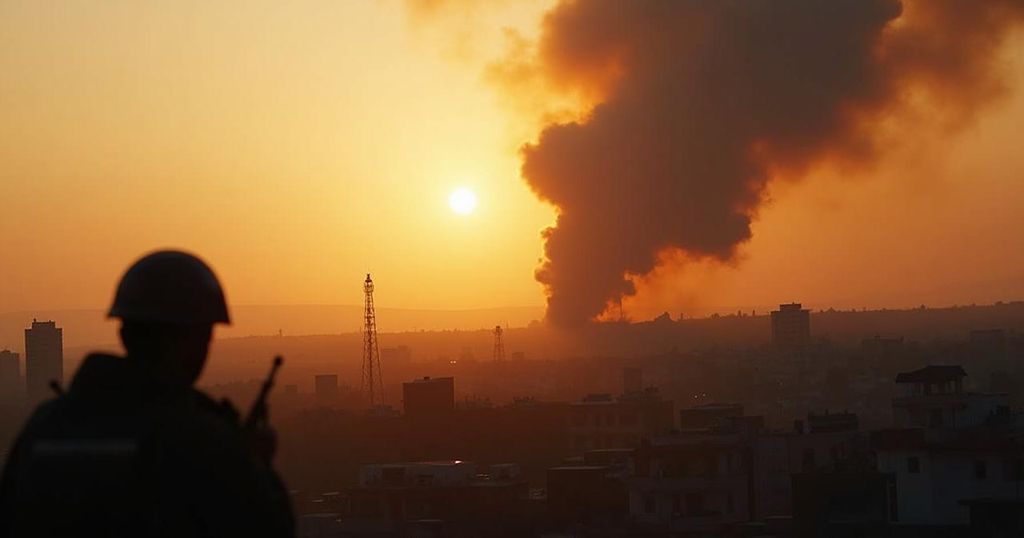Israeli Military Strikes Hezbollah Amid Escalating Tensions Following Nasrallah’s Death
The Israeli military conducted attacks on Hezbollah targets in Lebanon after confirming the death of leader Hassan Nasrallah. Iran has vowed retaliation, and U.S. President Biden termed the assassination as justice for past terror. These events mark a potential shift in regional power dynamics, intensifying the conflict and leading to numerous casualties.
On Sunday, the Israeli military reported carrying out extensive strikes against Hezbollah targets in Lebanon, which included various launchers directed towards Israel. This escalation occurred following the confirmation of the death of Hezbollah’s long-time leader, Hassan Nasrallah, prompting a firm response from Iran. Iranian Supreme Leader Ayatollah Ali Khamenei stated that Nasrallah’s assassination “will not go unavenged” and declared five days of public mourning for the late leader. U.S. President Joe Biden characterized Nasrallah’s death as a “measure of justice” for those affected by what he described as a “40-year reign of terror” while advocating for a ceasefire between the involved parties. Key developments from the preceding day include the Israeli army’s declaration that they had “eliminated” Hassan Nasrallah in an airstrike executed in Beirut. The Israeli government reiterated that this action would alter the regional power dynamics significantly. Additionally, other prominent Hezbollah leaders, such as Ali Karki, were confirmed dead following the strikes. Reports from Lebanon’s health ministry indicated that on the previous day, at least 33 individuals lost their lives and nearly 200 sustained injuries as Israel continued its offensive against Hezbollah.
The ongoing conflict between Israel and Hezbollah has been exacerbated by recent events following the killing of Hassan Nasrallah, a significant figure in Hezbollah and an ally of Iran. His leadership extended over decades, during which Hezbollah has engaged in numerous confrontations with Israel. The situation poses a considerable threat to stability in the already volatile Middle East, characterized by intricate alliances and longstanding grievances. Following this escalation, both Iran and Hezbollah have indicated their resolve to retaliate against Israel, potentially leading to further military confrontations.
In summary, the assassination of Hassan Nasrallah has prompted heightened military actions by Israel against Hezbollah, reaffirming Tehran’s intention to respond decisively. The implications of this conflict extend beyond regional boundaries, drawing attention from international players such as the United States, which has advocated for restraint. Given the involvement of multiple factions and the stakes at play, the potential for escalating violence remains significant.
Original Source: www.france24.com




Post Comment